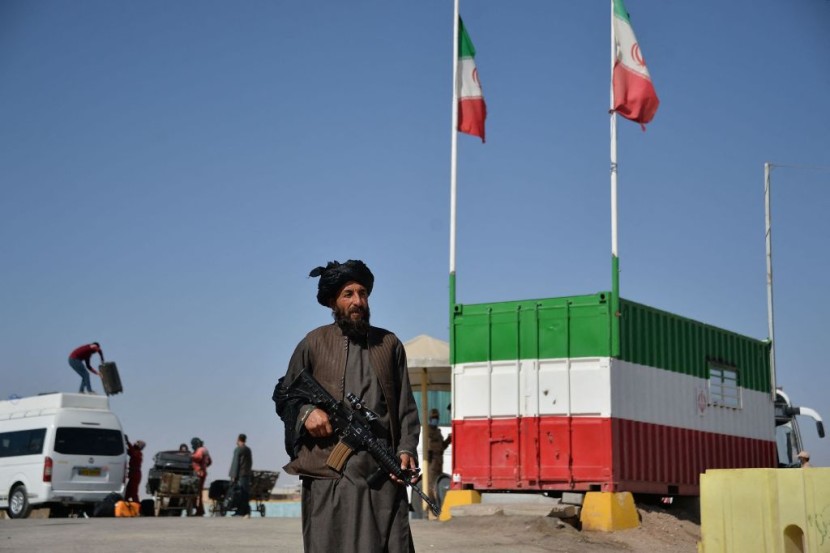
Both Afghanistan's Taliban authorities and neighboring Iran announced on Sunday that lethal clashes between their border security forces had subsided and that both parties were engaged in discussions to defuse tensions.
Saturday, fighting broke out in the Afghan border province of Nimroz, murdering two Iranian security forces and a Taliban border officer, according to officials from both countries.
Taliban, Iran Exchange Heavy Gunfire on Border
The intense exchange of gunfire across the frontier escalated tensions between Iran and Afghanistan over a dispute over water resources, as per VOA News. The Iranian state-run IRNA news agency reported on Sunday that a senior official stated that "the situation is under control" in the conflict zone near the Sasuli border post in Iran's Sistan-Baluchistan province.
Alireza Marhamati, the vice-governor of the province, stated that "local Iranian and Afghan officials met to discuss the cause of the confrontations and agreed to continue their discussions."
A spokesman for the Afghan Ministry of the Interior stated in a statement that his government "does not want to fight with its neighbors" and that Iranian forces initiated the conflict, causing Afghan border forces to retaliate. Both countries' officials accused the other of initiating the conflict. According to Iranian state media, an official in southeastern Iran reported that calm had returned to the border region on Saturday night.
In recent weeks, Iranian officials have accused the Taliban administration of violating a decades-old treaty between the two countries by restricting the flow of water out of Afghanistan; the Taliban administration has denied these allegations.
Per NY Times, water has been a subject of contention between Afghanistan and Iran for centuries. The Helmand River, the longest river in Afghanistan, descends from the foothills of the Hindu Kush Mountains into wetlands along Afghanistan's border with Iran, connecting the two nations.
In southern Afghanistan and southeastern Iran, the river is a vital source of potable water and water for agriculture and fisheries. In the 1940s and 1950s, Afghan administrations constructed two large dams along the Helmand River, which allowed Afghanistan to cut off water flow into Iran and alarmed Iranian officials during times of severe drought.
Iran-Afghanistan Water Resources Treaty
The two countries signed a treaty in 1973 regarding the sharing of water resources, but it was never ratified, and the flow of water from the river has remained a contentious issue ever since. Since the Taliban took power in Afghanistan in August 2021, the Iranian government has maintained relations with Afghanistan, and in February, Iran became one of the few foreign governments to receive Taliban diplomats.
This month, however, Iranian President Ebrahim Raisi cautioned the Taliban administration against violating the terms of the 1973 water treaty and urged the Afghan government to permit Iranian hydrologists to measure the river's water levels.
According to the Taliban, Afghan Interior Ministry spokesman Abdul Nafi Takor claimed that Iran fired first. According to Takor, the firefight resulted in the deaths of two individuals, one from each country, and several injuries. He stated that the situation was now under control. The main commercial route Milak border crossing with Afghanistan, was closed until further notice due to the gunfight, as per CNBC.
© 2025 HNGN, All rights reserved. Do not reproduce without permission.








